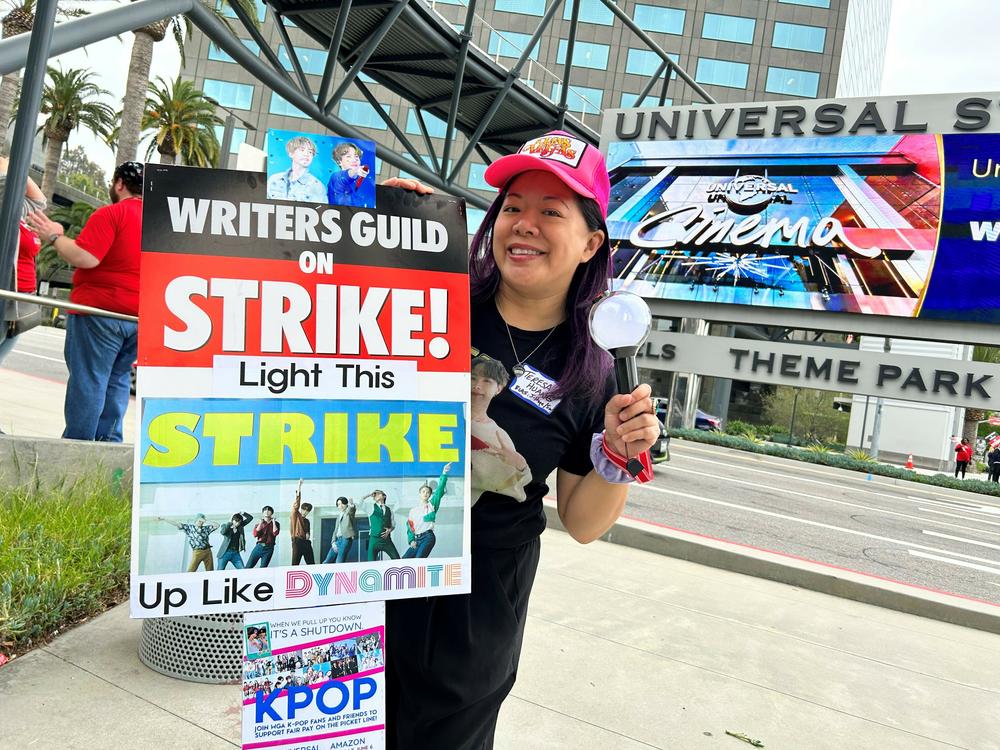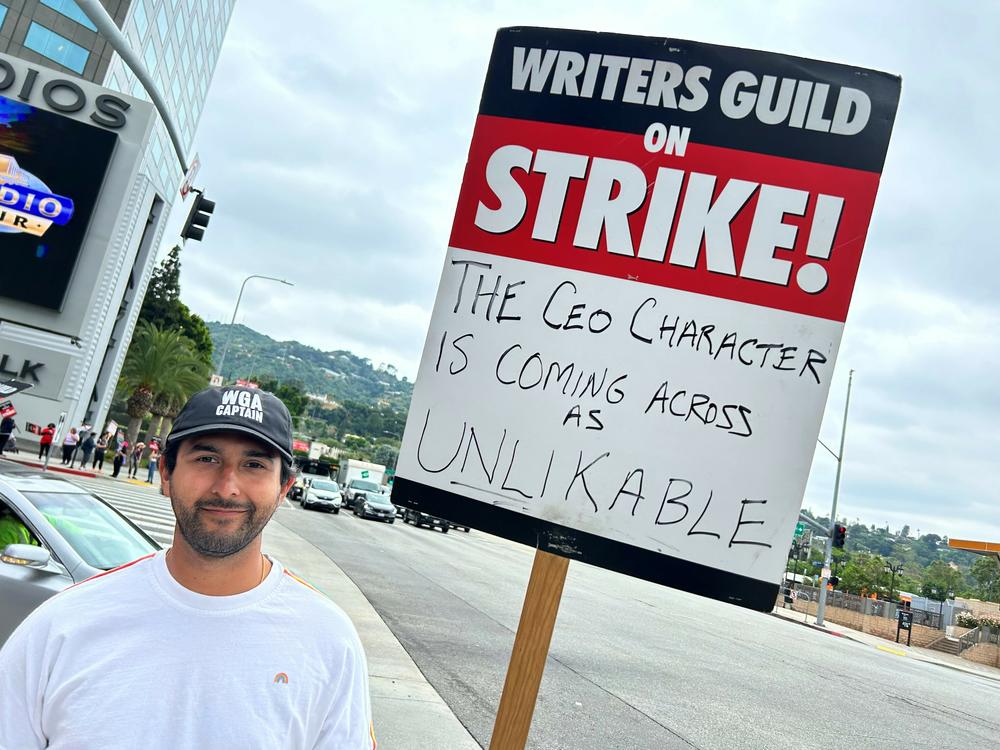Section Branding
Header Content
Hollywood writers still going strong, a month after strike began
Primary Content
It's been a month since film and TV writers began their strike against Hollywood studios, hoping for a new contract offering higher wages, more residuals, regulations on AI, guaranteed staffing minimums, among other demands. On the picket lines, morale remains high.
"One month in, we're still going strong. Our passion is not decreased," said Teresa Huang, a writer and actor who stopped working on a Netflix show when the strike started. "We're gearing up to head into the summer to keep striking until we get a fair deal."
Huang, who's also a member of SAG-AFTRA, organized a special K-POP themed picket outside Universal Studios. There have been other picket line theme days, including singles events, Greta Gerwig appreciation day, Pride and drag queen day, and reunions for writers of shows such as E.R. and the various Star Trek series. The WGA has a running calendar of all the special days.
These kinds of events have kept up the writers' spirits, said Cheech Manohar, a WGA strike captain who's also a member of SAG -AFTRA. "We know that we're fighting the good fight. And a month in, with the amount of money that the studios have lost, we know that this is not just about pay. It's also about protection and power," he said. "We realized that the studios could have ended this any time they wanted to if it were just about the money. But in fact, it's about keeping a system that can continually undervalue writers. There's a certain amount of power and a certain amount of greed that they're not willing to let go of."
In the initial wake of the strike, the AMPTP said it had presented the WGA with a proposal, including "generous increases in compensation for writers as well as improvements in streaming residuals." According to that statement, the studio's alliance told the WGA it was prepared to improve that offer "but was unwilling to do so because of the magnitude of other proposals still on the table that the Guild continues to insist upon."
Actors, Teamsters, Hollywood production workers, and others have joined striking writers on the picket lines, with their union leaders vowing solidarity. Teamster drivers have turned around from studio entrances so as not to cross picket lines, and some productions have reportedly been interrupted because of the strike.
In May, the president of the Writer's Guild of America West, Meredith Stiehm, sent letters to Netflix and Comcast investors, asking them to vote against pay packages for top executives. On Thursday, Netflix shareholders did just that, in a non-binding vote against the compensation structure for executives such as co-CEO Ted Sarandos.
Meanwhile, the Directors Guild of America continues negotiating for a new contract with the AMPTP. And actors in SAG-AFTRA are set to begin their contract talks next week. Contracts for both the DGA and SAG-AFTRA will expire at the end of June.
Copyright 2023 NPR. To see more, visit https://www.npr.org.


